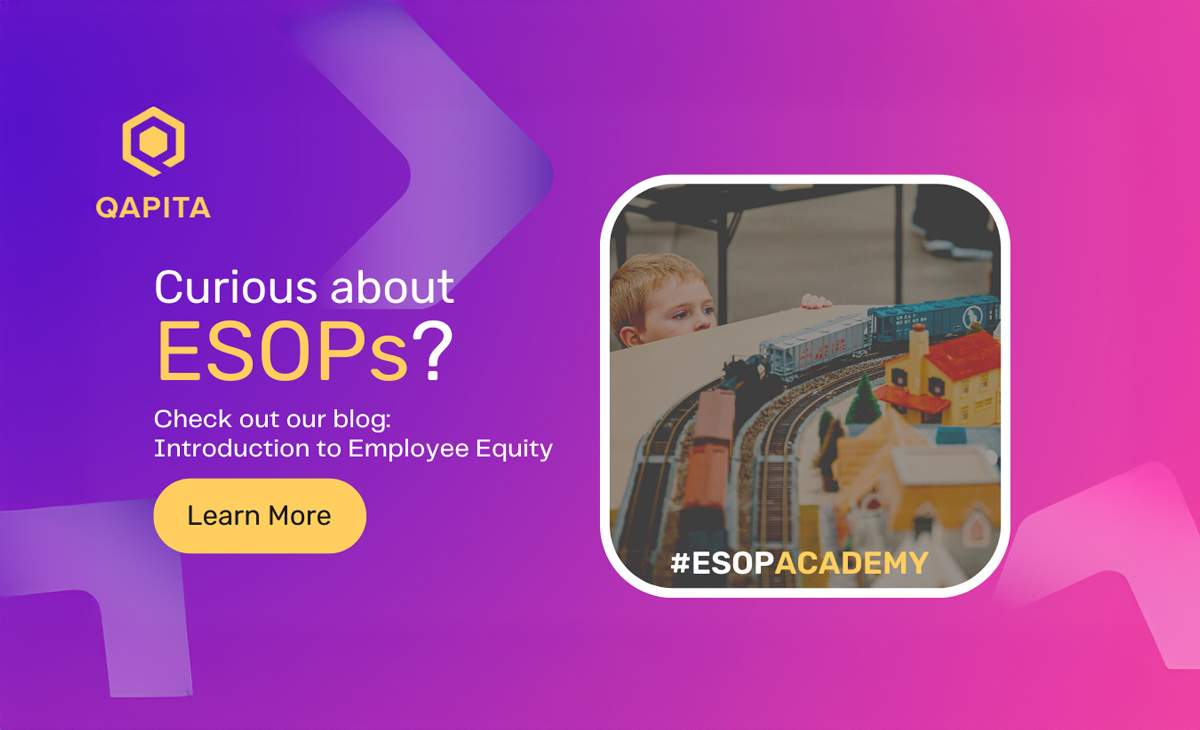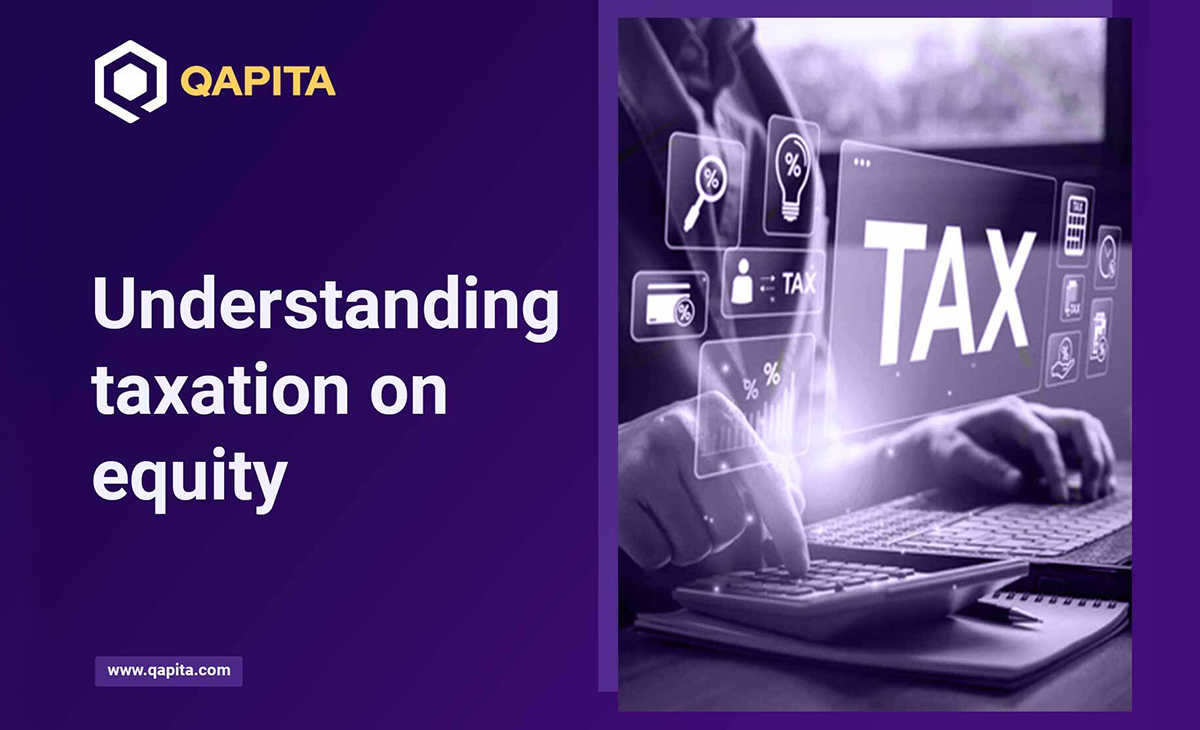The World of Employee Equity
I'm sure you have come across one of the financial press articles about CEOs making tens of millions of dollars a year. Massive salary and bonus, isn't? Not necessarily (even though those can be substantial, too), as most of that value is often derived from their participation in their company's equity plans.
Good news is that you don't need to be a CEO to get an opportunity to be part of company's ESOP. There is a clear global trend for both large corporations and early-stage startups to take equity compensation seriously at all levels of organisation - not just when it comes to executive compensation.
If you have an opportunity to receive ESOPs at your current company or from a prospective employer, you need to understand what you may be getting into. You can then make the best possible decision given your individual circumstances as you are weighing up your options (no pun intended).
If you already have ESOPs and have no idea what this all means for you, you have also come to the right place. ESOP Academy is a series of articles that will lay the fundamental groundwork for understanding how employee equity works.
What can you expect from ESOP Academy?
Employee equity is a complex field, but it doesn't need to be complicated. For many years companies have been getting support from service providers and advisers on setting up and running ESOPs. The same can't be said for the guidance provided to employees, the ultimate recipients of ESOPs.
ESOP Academy will attempt to address this informational asymmetry and provide a series of articles that will help you become comfortable in managing and talking about equity compensation with your employer.
In this series you will learn about all obvious and hidden aspects of participation in ESOP. At first, you will uncover the fundamentals of ESOP plan design and underlying equity instruments. Then, as you get comfortable with the basics, you will discover practical tips of how to talk to your employer about equity compensation, including a comprehensive checklist of all questions you should be asking before you accept their offer. Finally, the series will assess the long-term implications of participating in ESOP by exploring how tax implications, behavioural biases and risk management principles can impact your ESOP wealth generation journey.
But first things first - let's start with the basics.
Why would a company offer equity to their employees?
Before we dive into the detail, let's understand why on earth would companies give away equity to their employees. A couple of reasons, actually. Offering equity to employees is associated with several benefits:
- Employee motivation - employees perform better at their jobs, company performs better as result. As company becomes more valuable thanks to their strong growth and performance, the same employees benefit as they hold a stake in the company. A blueprint for a win-win scenario for everyone involved.
- Employee retention - as an employee, you generally don't become a shareholder upfront - instead, you often 'earn' (by waiting for a period of time called vesting period) to get unrestricted access to your stake in the company. Whilst it would be nice to get the benefits at once, it seems logical that companies want to provide you with an incentive to stick around for the long term and contribute to the company's success.
- Increasing value for shareholders - if employees also own equity in the company, their interests will be aligned with those of company's investors. You can see how this can help create a scenario where all stakeholders associated with the company are working together towards a common goal and for mutual benefit.
Those all seem like solid reasons for companies to consider ESOPs, and rightly so. Putting aside the theoretical benefits, other factors come into play. You must have heard about the "great resignation" and ongoing "war for talent" during the pandemic. Indeed, with increasing competition for top talent, equity compensation has become more of an expectation for candidates than a simple nice to have feature. The companies are now expected to include ESOPs in their remuneration frameworks to stay competitive. This is true across the board, but especially in the startup world. Good news for us!
Do all companies offer equity?
The above reasons are surely enough to convince founders to roll out ESOPs in their organisations. In practice, not all companies offer equity despite the benefits they present. Here are some of the reasons why companies may opt to not offer equity to their employees (at least for the time being):
- Competing priorities in early-stage companies - founders in early-stage companies have conflicting priorities and limited resources. Unfortunately, formal ESOP design and rollout may seem like an unnecessary burden and be low on the priority list for some of the smaller companies. ESOPs may still be offered to early employees, but that may be done on ad hoc basis rather via a designed organisation wide equity program.
- Compliance and administrative concerns - as you can probably appreciate, design of ESOPs can get tricky. With increasing rate of remote-first and remote-only hiring approaches, companies need to be diligent in understanding the regulatory and tax implications for the company itself and their employees before they are comfortable to roll out the ESOP. The last thing companies want is to be caught by surprise by reporting and disclosure requirements or trigger unintended tax consequences for their employees. There could be scenarios where companies opt to offer equity only to a subset of employees or certain jurisdictions only for these reasons - keep that in mind.
- Management may be not comfortable with the idea of employees as owners and possible dilution - there are other ways in which companies can attract and reward talent. In some circumstances, ESOPs may not fit the company's culture, goals or the needs of their employees at the time. For instance, high level of risk and long-term upside potential that comes with equity may not always be as appropriate as pure cash compensation for certain roles. Alternative arrangement can be utilised by companies, including profit sharing and other benefit programs.
In summary, there is no requirements for companies to offer equity to their employees, and use of ESOPs may not always be appropriate for all organisations. Nevertheless, there can be clear benefits in offering equity. When you talk to your current or prospective employer, try to understand how they have designed their total reward framework and what role (if any) does equity play in it. Even if you company does not offer you ESOPs, it is still important to understand how they have structured their remuneration and benefits, and whether offer you have received may still be compelling and suitable for you.
What's Next?
OK, that makes sense. And let's say you just got a nice offer from a potential employer that includes salary, equity and a variable year-end bonus, and most importantly a t-shirt with the company logo. You accept it and you are now a shareholder in your new company!
Well, not quite. In majority of cases, you are not receiving actual shares in the company immediately. But don't worry, you are not getting scammed. This doesn't make your equity award worthless. We will need to break down how your potential employer's equity plan could be structured and what it all means for you.
Shares are just one of the instruments that a company can use to grant you equity. Before we explore all possible equity instruments, it's important to understand the entire journey of receiving, holding and transacting on your ESOP award. Coming up next is a deep dive into the lifecycle of your award.
Next week: ESOP Academy #2: Lifecycle of Equity Awards
Stay tuned: ESOP Academy #3: Equity Instruments


 Equity management
Equity management

 Fund management
Fund management

 Fund management
Fund management

 Fund management
Fund management













































